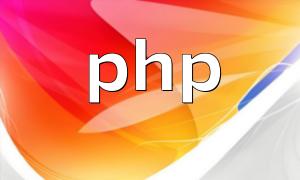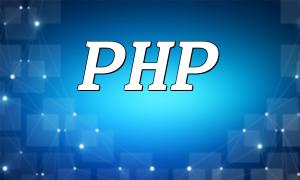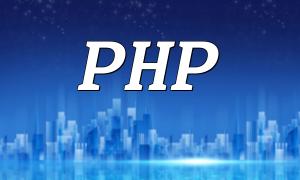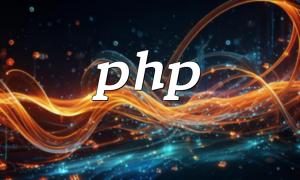PHP is a widely used scripting language for web development, appreciated by developers for its ease of learning and rapid development capabilities. However, for low-level developers, understanding the underlying implementation of PHP is crucial, as it directly impacts code optimization, performance tuning, and functionality extension. This article explores PHP’s low-level development principles, focusing on the PHP interpreter, core modules, extension modules, and optimization techniques to help developers gain a better understanding of PHP’s internal workings.
The PHP interpreter is responsible for parsing and compiling PHP code into executable instructions and executing them line by line. There are two main PHP interpreter versions: Zend Engine and HHVM. Zend Engine, due to its compact design and excellent performance, is the most commonly used interpreter. HHVM, developed by Facebook, has Just-In-Time (JIT) compilation features, offering superior performance.
The primary tasks of the interpreter include lexical analysis, syntax analysis, semantic analysis, and instruction generation. Lexical analysis converts source code into a series of “tokens,” such as identifiers, constants, and operators. Syntax analysis organizes these tokens into a syntax tree. Semantic analysis checks the syntax tree for type validation and semantic correctness to ensure the program is logically sound. Instruction generation then converts the syntax tree into executable instructions.
The PHP core modules consist of a series of low-level C functions that provide interaction capabilities with the operating system, file system, and databases. These functions include file reading and writing, directory manipulation, logging, network communication, encryption, memory management, and more. These core functions form the backbone of the PHP language.
Developing core modules requires familiarity with C programming and PHP’s internal API, as well as knowledge of cross-platform development. By writing core modules, developers can significantly enhance PHP’s performance, extend its functionality, and even create advanced features.
In addition to core modules, PHP allows the extension of its functionality through extension modules. These modules can be dynamic link libraries (DLLs) written in C or PHP scripts. PHP offers a rich set of extension interfaces, allowing developers to create their custom extensions.
PHP extension modules can serve various purposes, including enhancing PHP’s features, such as database extensions, image processing, and caching. They can also optimize performance, such as using accelerators and cache extensions. By developing custom extensions, developers can tailor PHP’s functionality and performance to meet specific needs and achieve desired outcomes.
Optimization plays a key role in PHP low-level development. By employing various optimization techniques, developers can significantly improve PHP’s performance.
First, optimizing the PHP interpreter is essential. Performance can be improved by adjusting PHP’s execution parameters, such as increasing memory limits, tweaking compile options, and enabling caching. Additionally, optimizing PHP code itself—such as avoiding the use of eval functions and global variables—can further enhance performance.
Next, optimizing the core modules is a crucial part of performance enhancement. Improving the efficiency of file I/O operations, optimizing network communications, and utilizing multi-threading or asynchronous techniques can help increase concurrent performance.
Finally, selecting the right extension modules can help optimize PHP. Using built-in caching extensions or third-party accelerators can significantly improve the performance and functionality of PHP applications.
This article provides a comprehensive overview of PHP’s low-level development principles, covering the PHP interpreter, core modules, extension modules, and performance optimization techniques. A deeper understanding of PHP’s internal workings allows developers to better optimize their code, improve application performance, and extend PHP’s functionality. Continuous learning and practice will enable developers to gain a better grasp of PHP’s underlying mechanisms, thus improving their development capabilities.









